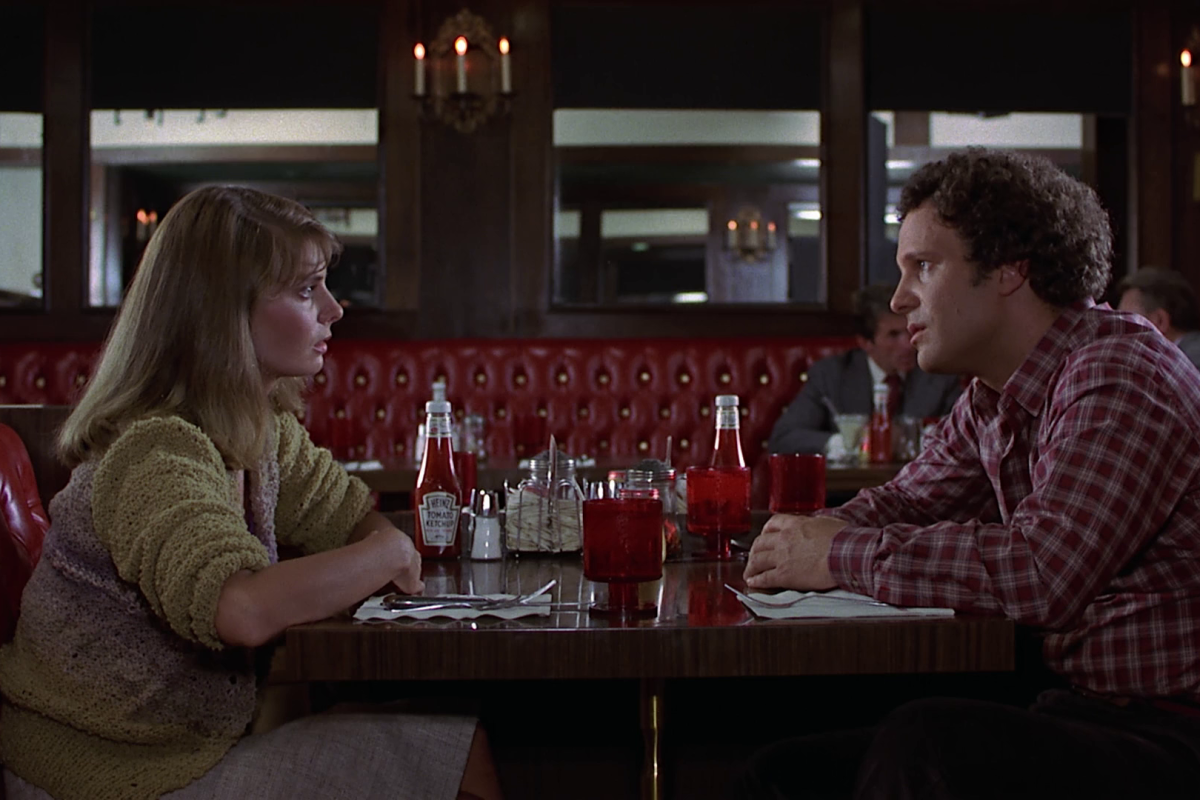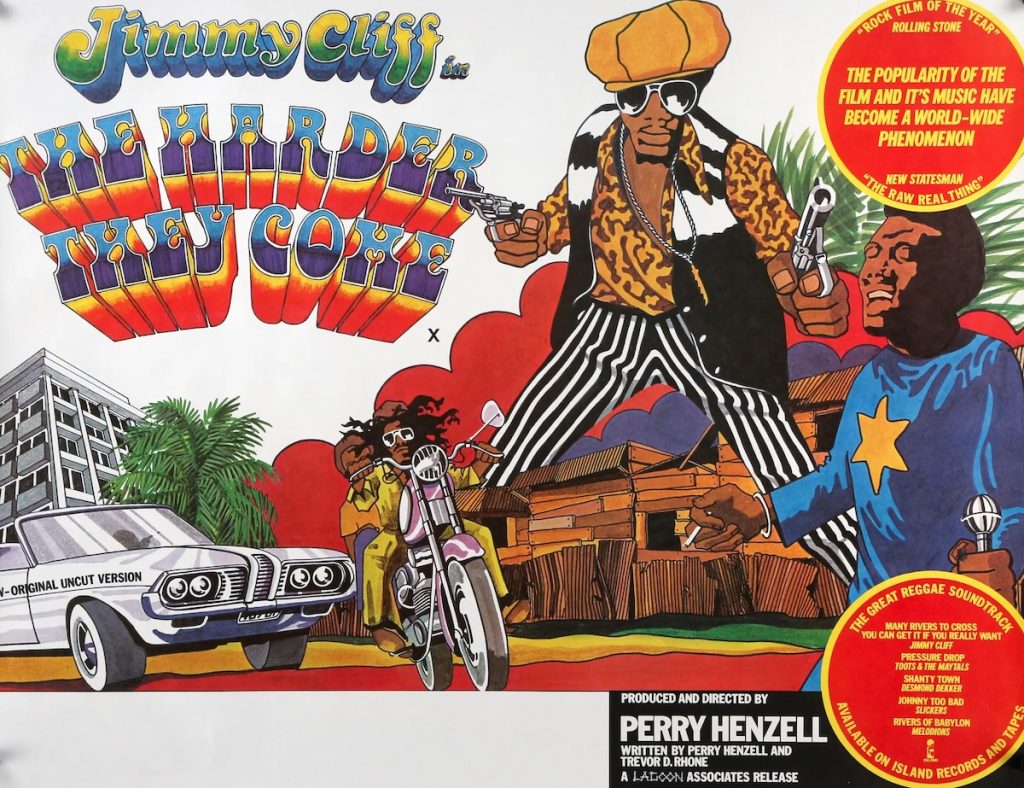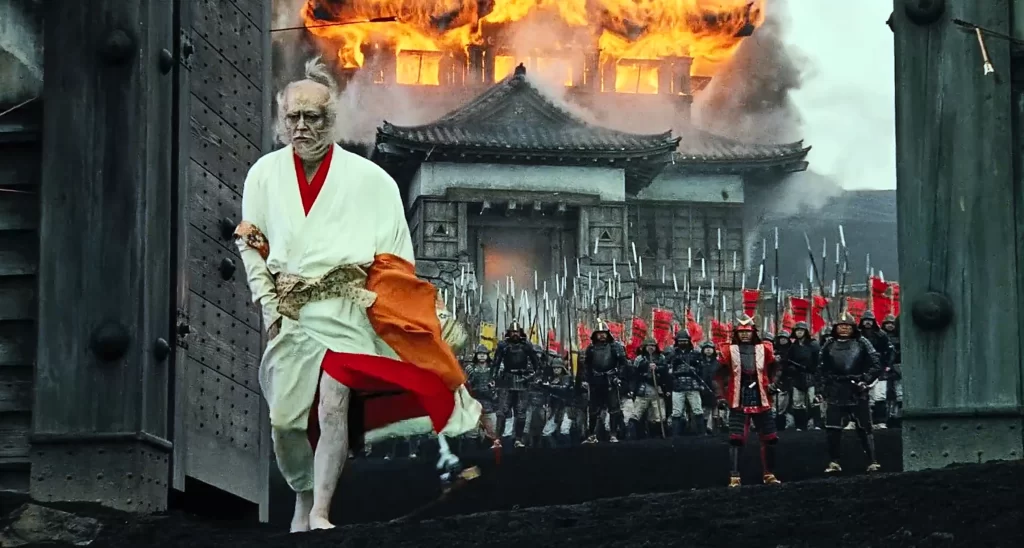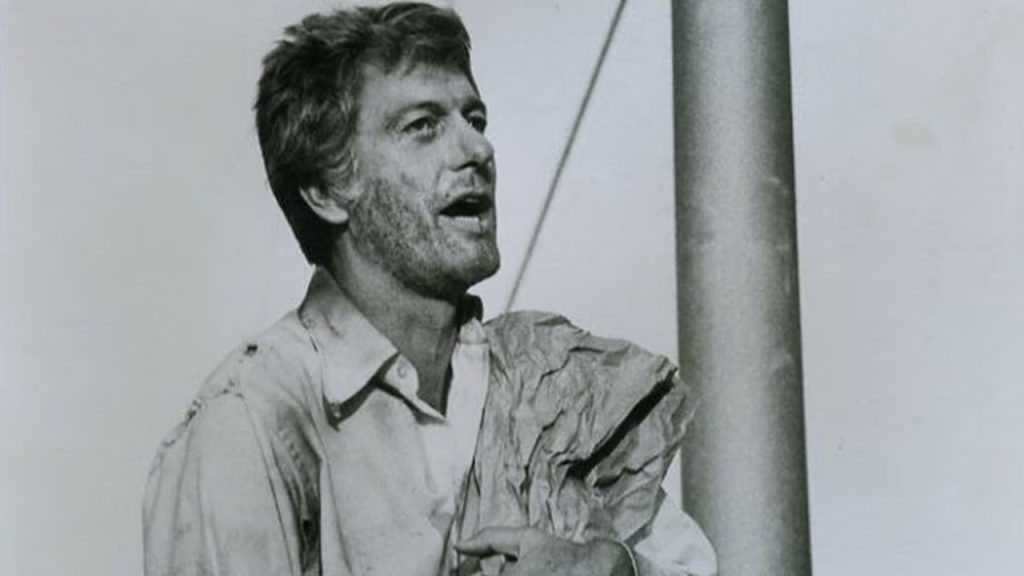“I misjudged you. I’m not perfect.” This deadpan line comes about 30 minutes into the searing, acidic 1981 comedy Modern Romance, which opens with the nebbishy film editor Robert Cole (Albert Brooks) breaking up with his charming girlfriend Mary (Kathryn Harrold), and closes with him desperately proposing marriage to her and managing to win her over. But the quoted passive-aggressive comment comes from neither Robert nor Mary; instead, it’s delivered by a passive-aggressive athletic salesman to Robert. Though the tossed-off comment may seem trivial relative to our glimpses at the fascinating, almost horrifying arc for Robert and Mary, it’s a perverse little Rosetta Stone to the film just as Modern Romance is so foundational to 21st-century riffs on the quintessential romantic comedy from Judd Apatow and other younger filmmakers, depicting mismatched couples while rarely making it clear why both the man and woman actually want to date each other.
Much of the dark and uncomfortable humor of Modern Romance emanates from Robert’s almost instantaneous regret at breaking up with Mary. Though Brooks co-wrote and directed the film, he’s not remotely interested in flattering his onscreen self. Apatow-era comic heroes like Andy Stitzer in The 40-Year Old Virgin go through reams of embarrassment, like painful chest waxing. But while Brooks-the-writer is emphatically aware of how awkward Robert is, he lets his hero march through life with an almost criminal lack of self-awareness.
Robert’s sweaty attempts to gain validation from others that breaking it off with Mary was the right thing to do leads him to get high on Quaaludes, randomly ask out a woman from his Rolodex, and eventually take up running as a new hobby. The salesman quoted above (portrayed by Brooks’ late brother, Bob Einstein) slickly guilts Robert into purchasing high-end equipment, despite it being plainly clear that Robert’s interest in running is rapidly vanishing. The cringey aspects of this scene, and of the entirety of Modern Romance, is rarely reflected in more recent comedies, eschewing that largely for gross-out humor, which may be an easier sell for audiences than encouraging them to wallow with a discomfiting protagonist whose selfishness is perversely rewarded in the end. When modern comedies do try to lean hard into that style, as in the cult 2009 comedy Observe and Report, they wind up feeling both spikier and less popular.
Only in the final scene of Modern Romance do Brooks and co-writer Monica Johnson make it evident that Mary’s side of this relationship is built on similarly wobbly footing. Is she charmed by Robert’s humor, or is she worn down by a man who declares at a quiet and secluded cabin that she wouldn’t want to be with someone who doesn’t “think about you every minute”? Instead of breaking up, Robert now wants to make the ultimate commitment: marriage, a family, and a house in the country. Robert’s proposal isn’t remotely romantic; in fact, the last scene isn’t just a situational reversal, but it’s a role reversal. Whereas Robert was once the rube being worn down by a passive-aggressive salesman, now he’s the passive-aggressive one wearing down Mary, who probably realizes that she should know better but can’t help herself any more than Robert could at the athletic store.
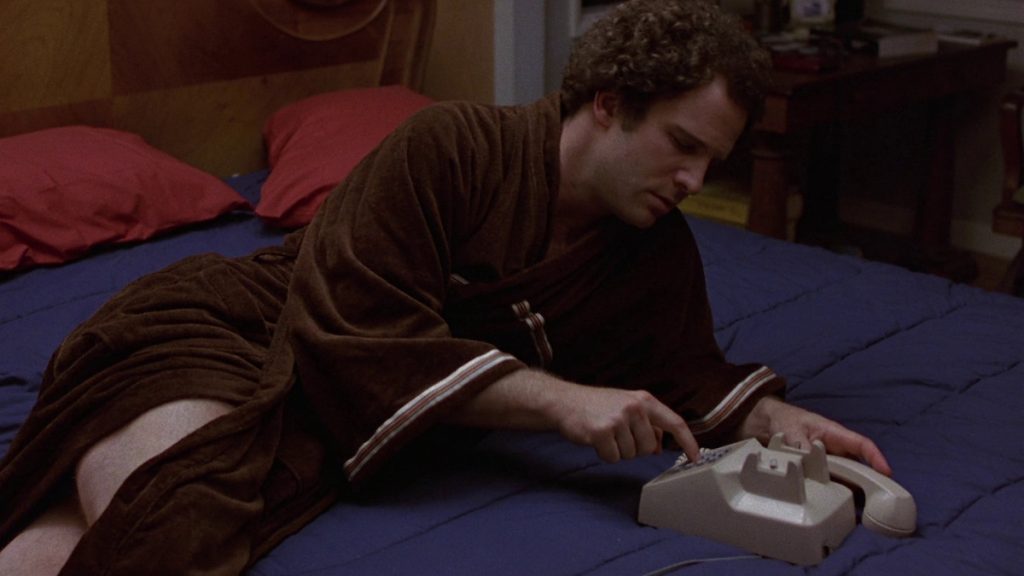
The crucial difference between comedies like Knocked Up or Forgetting Sarah Marshall, and Modern Romance is that the latter is emphatically aware of how mismatched its leads are. If the ending scene wasn’t cringeworthy enough as we see how Robert pushes his way into getting what he wants and in how Mary becomes more willing to buy his line, its crane-shot ending is clear. As the camera moves away from the cabin, three sentences appear onscreen: “Robert and Mary were married three weeks later in Las Vegas, Nevada. They were divorced the following month. They are currently dating with plans to remarry.”
Modern Romance may not have been a massive hit, but it had some notable fans. Brooks would later recount that no less than Stanley Kubrick praised the film to him, stating that he’d “always wanted to make a movie about jealousy.” Though Brooks was amazed at the amount of praise from such a legend, it makes sense. “Do you want somebody who doesn’t think about you every single minute?” That’s the question Robert puts to Mary in the concluding moments of Modern Romance, as clear a description of the character’s jealousy as possible.
Modern Romance treats this couple more effectively and with more emotional precision than so many genuine modern romantic comedies, in which (typically) the male character behaves in a way that would get him arrested in real life. (You know, the type of behavior inspiring this classic Onion article.) The written epilogue is a bone-dry and snappy punchline to what we’ve seen, spelling out the sense that Robert and Mary are horrible for each other but are locked in a spiral that they can’t escape. It’s clear to us when Robert is sold running gear that he’s never going to use it, and he’s unable to tell himself the truth. It’s just as clear when Robert and Mary decide to get married – it’ll never stick. One day, they might figure it out themselves.
“Modern Romance” is streaming on Tubi and available for digital rental or purchase.
